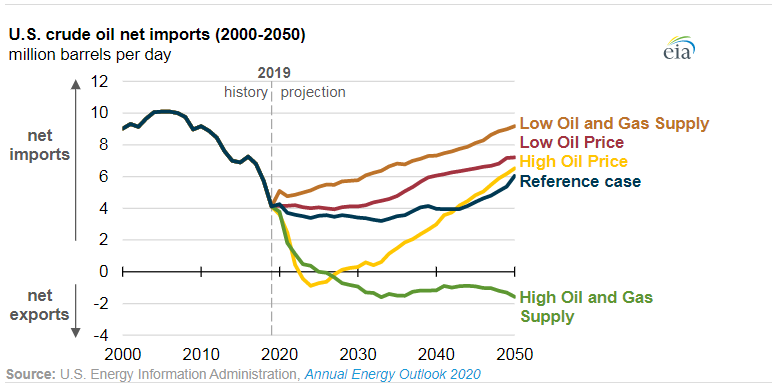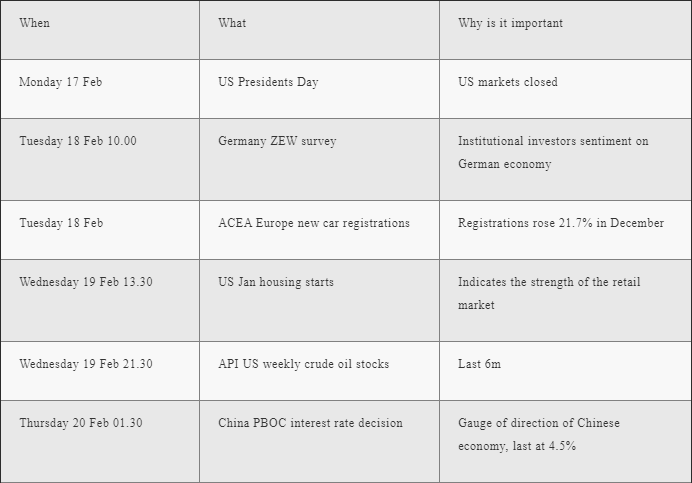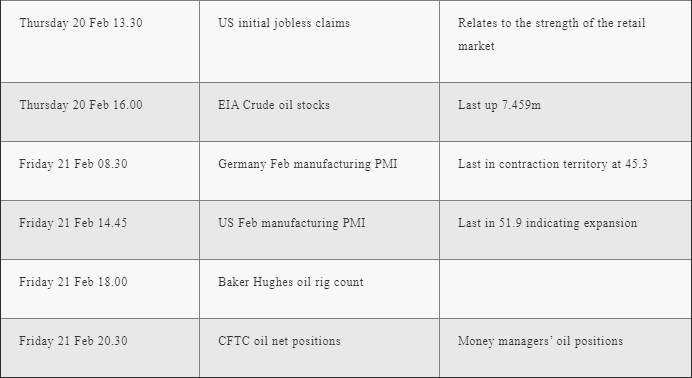A week has already passed since the OPEC technical committee recommended that the cartel and Russia deepen the production cuts to balance out the demand reduction that will come from the coronavirus. And yet, Russia has yet to make a decision, stalling for time to see if the news flow from China will disprove OPEC’s worst-case scenario expectations now that the spread of the virus seems to have slowed down a bit (Thursday’s big revision notwithstanding).
After OPEC made its recommendation, Russia’s Energy Minister met with domestic oil producers, but they managed to avoid making a key decision until next week when the larger part of China’s industry – which has been shuttered during the coronavirus outbreak – is expected to start operating again close to normal capacity. The week ahead should bring a final response from Russia, even if it's one that OPEC does not want to hear. If that happens, OPEC may still go ahead and cut its production, reaching a decision at the latest at its next scheduled meeting in Vienna at the beginning of March.
Car Production Contagion
The aftermath of the coronavirus is not dissimilar to cleaning the house after a raucous party, with a new damaged item found every day. In no industry is this more the case than with car producers where the disruption in the supply of smaller items and spare parts has or may yet force producers outside of China to briefly stop assembling cars while they look for alternative supplies. South Korea’s Hyundai (OTC:HYMLY) has been one of the worst-hit producers outside of China, but by next week it is likely to resume output, albeit below previous production levels. European car production is also not out of the woods yet – so far Fiat Chrysler (NYSE:FCAU) has warned that one or two of its European plants may find themselves having to stop production for a time as component supplies dry up. So far, production in North America has not been faced with serious problems with parts supplies even though most cars contain some components that are produced in China.Here is an overview of how car makers have been affected:
- BMW to restart production on 17 Feb
- Daimler reopened Beijing plant on Feb 10
- Fiat Chrysler expects disruption to its European operations
- F resumed output at two Chinese plants on 10 Feb
- GM to restart production in China on Feb 15
- Hyundai and Kia Motors closed plants in Korea between 4 -11 Feb because supply of engine wire harnesses from China had stopped. Hyundai’s China factories expected to reopen Monday.
- Nissan stopped production in Japan on 11-12 Feb because of parts shortage
- Peugeot ’s three Wuhan plants to reopen Feb 14
- Renault closed Busan plant between 11-16 Feb
- Tesla closed Shanghai plant between 29 Jan and 10 Feb
- Toyota to reopen plants on Feb 16. It operates 12 car and component factories in China
- VW to restart production on Feb 17.
U.S. Market Closure Monday Shifts The Week By A Day
The U.S. Presidents Day closure on Monday will shift back the release of oil-market related data like API weekly crude stocks and EIA’s stock data by one day. Last week, the EIA reported an increase in crude oil stocks of 7.459m, in itself not hugely worrying in terms of demand given that this is within the band seen over the last few years. However seasonally, demand tended to be higher than this in January and the latest increase reflected the unseasonably mild winter. It is also evidence of the continuing rise in U.S. oil production, unmatched by domestic demand growth, which is predicted to result in the U.S. solidifying its position as a net exporter of crude until 2050, according to the EIA.



